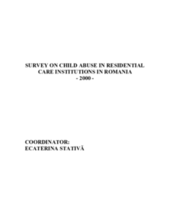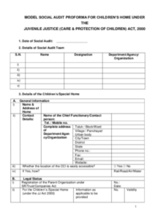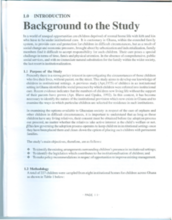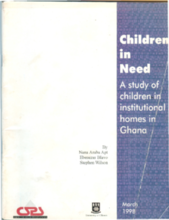Displaying 1481 - 1490 of 1510
Report assessing the overall features of children in residential care institutions with consideration for families of origin, gender, socioeconomic status and type of institution.
This blank form from the Ministry of Women and Child Development of India is designed for use during an audit of a children’s home.
This document provides background information to a study conducted on the situation of children in institutional homes in Ghana.
This study was intended to identify existing arrangements surrounding children’s presence in institutional settings, identify legislation that contributes to the institutionalization of children, and make policy recommendations in respect of the opportunities to improve existing arrangements.
This document provides supplemental information to a study conducted on the situation of children in institutional homes in Ghana.
This paper explores the factors surrounding the lives of children that live on the streets or in institutions in Egypt.
This document is a guideline to facilitate good policy and practice within both institutional care and community-based care settings for children in Ethiopia. It addresses the physical environment, staffing, gatekeeping, child services, reunification, adoption and general administration.
This chapter provides an overview of a child care institution, the Osu Children’s Home, in Ghana.
This report from Australia's Human Rights and Equal Opportunity Commission aimed to trace the past laws, practices and policies which resulted in the separation of Aboriginal and Torres Strait Islander children from their families by compulsion, duress or undue influence, and the effects of those laws, practices and policies.
Ideas and country examples on how to create or transform an educational centre for children living and working on the street.








